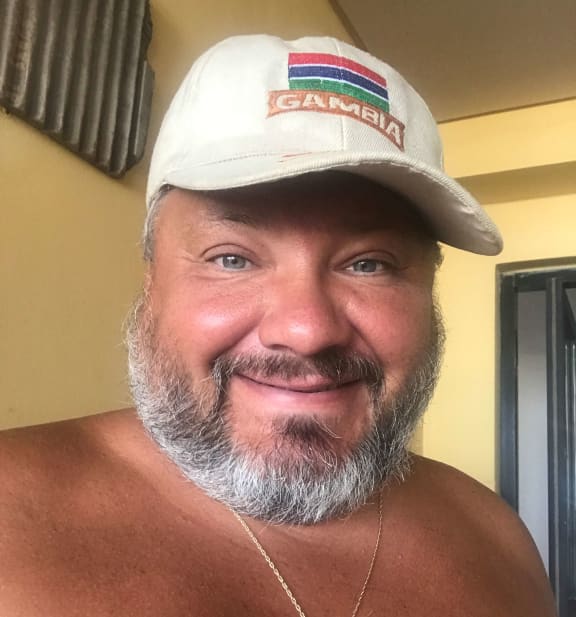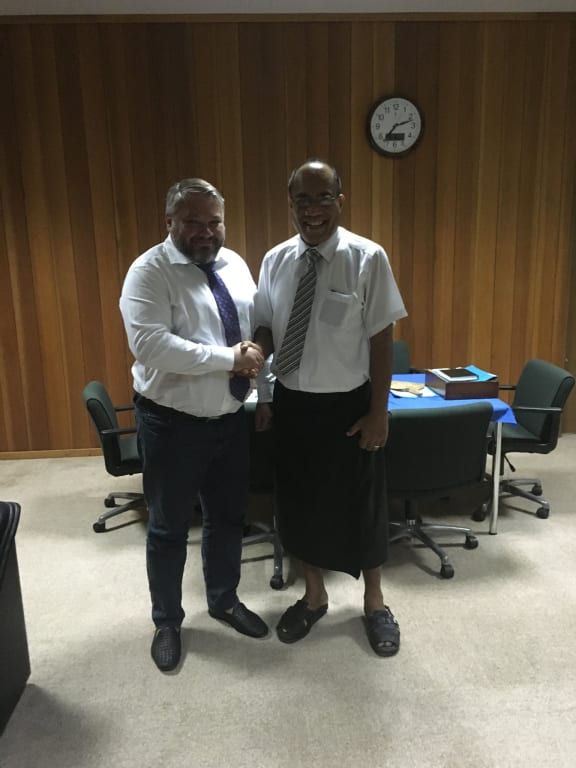A Russian businessman seeking to restore the Romanov Empire in Kiribati says his plans are now being realised in the western African country of The Gambia.
Anton Bakov made the announcement at a news conference in the city of Yekaterinburg, saying a Memorandum on Friendship and Cooperation between the Romanov Empire and the Republic of the Gambia has been signed in Banjul.

Russian businessman and politician Anton Bakov, sporting a cap from The Gambia, where he plans to revive the Romanov Empire. Photo: Supplied
Mr Bakov said once a treaty is signed, the Empire will pay $US60 million to the government of the Gambia.
Then artificial islands, not exceeding 10 square kilometres, are planned to be built within the Gambia's territorial waters to accommodate the revived Empire.
The islands are to include an economic zone as well as what is being labelled the first 'smart city' in Africa.
A capital city is to be built called Saint Nicholas in reference to Czar Nicholas II who was executed in Yekatrinburg in 1918 after the Bolshevik revolution.
The agreement provides for the Gambia and the Romanov Empire to establish diplomatic relations and for the Empire to have broad jurisdiction, including over immigration.
Mr Bakov, who is a former parliamentarian, is also the head of the Monarchist Party and a candidate in next year's Russian presidential election.
In February, Kiribati turned down Mr Bakov's bid to site his empire on uninhabited islands of the Line Group where he planned to invest $US350 million.
He told RNZ Pacific last month that he still doesn't know why Kiribati approved the project in October last year before rejecting it in February.

Anton Bakov and Taneti Maamau in May, 2016. Photo: Facebook
"They never argue with you, never uphold their point of view, they have no culture of negotiations or discussions. If a question causes disagreements, they just hide," he said.
He viewed the refusal as an "element of national culture" which he said offended him no more "than the rain which wets my umbrella."
However, he had praise for the people, for its "super-democracy" and notes that "it is quite obvious that it is not an easy task to survive on the tiny islands."
But Mr Bakov said Kiribati cannot rely on fishing and aid transfers alone. It needed to develop its economy, he said.
"I mean big crowds of children will graduate from school in the nearest future and will not be able to get a job," he said.
Mr Bakov also said he was still awaiting a positive decision if not from the current Kiribati government led by Taneti Maamau, then from the following one.
He said he had worked out "in most details the development of Malden island, into a mosaic, into a puzzle in a huge picture of modern planetary economy of the 21st century."
He said so far he spent about one million dollars in Kiribati during the six months he was there.
"Therefore I am not going to quit this project - I have no competitors there."

